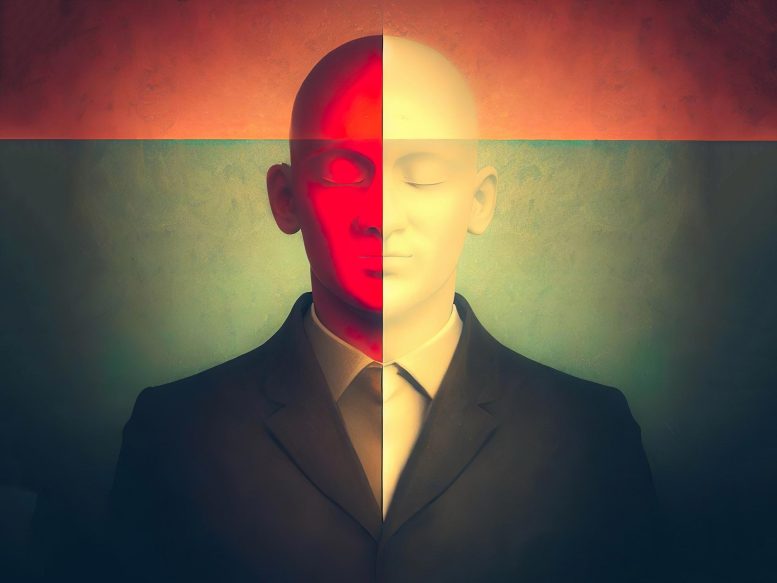
In a groundbreaking study, it has been suggested that humans are not as unique or egalitarian in their societal behaviors as often believed. The study involved a hundred researchers from various global institutions and compared data from 90 human populations to lifetime data for 45 different nonhuman, free-ranging mammals.
Study looks at reproductive inequality in humans compared to other species.
A recent study led by UC Davis has challenged the notion of human exceptionalism in societal behaviors, arguing that humans resemble mammals living in monogamous partnerships and cooperative breeders, while monogamy can cause significant inequalities among women.
In modern society, one parent may take a daughter to ballet class and fix dinner so the other parent can get to exercise class before picking up the son from soccer practice. To an observer, they seem to be cooperating in their very busy, co-parenting, monogamous relationship.
These people may think they are part of an evolved society different from the other mammals that inhabit the Earth. But their day-to-day behavior and child-rearing habits are not much different than other mammals who hunt, forage for food, and rear and teach their children, researchers suggest.
“For a long time it has been argued that humans are an exceptional, egalitarian species compared to other mammals,” said Monique Borgerhoff Mulder, professor emerita of anthropology at the University of California, Davis, and corresponding author of a new study. But, she said, this exceptionalism may have been exaggerated.
“Humans appear to resemble mammals that live in monogamous partnerships and to some extent, those classified as cooperative breeders, where breeding individuals have to rely on the help of others to raise their offspring,” she said.
“It turns out that monogamous mating (and marriage) can drive significant inequalities among women.” — Monique Borgerhoff Mulder
The UC Davis-led study, with more than 100 researchers collaborating from several institutions throughout the world, is the first to look at whether human males are more egalitarian than are males among other mammals, focusing on the numbers of offspring they produce.
The article, “Reproductive inequality in humans and other mammals,” was published this week (May 22) in the Proceedings of the National Academy of Sciences. Co-authors include researchers from UC Davis, The Santa Fe Institute, the National Institute for Mathematical and Biological Synthesis, and the Max Planck Institute for Evolutionary Anthropology, Germany.
The researchers amassed data from 90 human populations comprising 80,223 individuals from many parts of the world — both historical and contemporary. They compared the records for men and women to lifetime data for 45 different nonhuman, free-ranging mammals.
The researchers found that humans are by no means exceptional, merely another unique species of mammal. Furthermore, as first author Cody Ross, former UC Davis graduate student in the Department of Anthropology now at the Max Planck Institute, points out “we can quite successfully model reproductive inequality in humans and nonhumans using the same predictors.”
Egalitarianism in polygynous societies
Somewhat unexpectedly, when focusing specifically on women, the researchers found greater reproductive egalitarianism in societies that allow for polygynous marriage than in those where monogamous marriage prevails. In polygynous systems, in which men take several wives at the same time, women tend to have more equal access to resources, such as land, food and shelter — and parenting help. This is because women, or their parents on their behalf, favor polygynous marriages with wealthy men who have more resources to share.
Researchers observed something else in their work.
“It turns out that monogamous mating (and marriage) can drive significant inequalities among women,” Borgerhoff Mulder said. Monogamy, practiced in agricultural and market economies, can promote large differences in the number of children couples produce, researchers found, resulting from large differences in wealth in such economies.
How humans may differ
The fact men are relatively egalitarian compared to other animals reflects our patterns of child-rearing. Human children are heavily dependent on the care and resources provided by both mothers and fathers — a factor that is unusual, but not completely absent — in other mammals, researchers said.
The critical importance of the complementary nature of this care — that each parent provides different and often non-substitutable resources and care throughout long human childhoods — is why we don’t show the huge reproductive variability seen in some of the great apes, said researcher Paul Hooper, from the University of New Mexico.
To support these inferences, however, anthropologists need more empirical data. “In short, the importance of biparental care is grounded in our model, but needs further testing,” Borgerhoff Mulder said.
Reference: “Reproductive inequality in humans and other mammals” by Cody T. Ross, Paul L. Hooper, Jennifer E. Smith, Adrian V. Jaeggi, Eric Alden Smith, Sergey Gavrilets, Fatema tuz Zohora, John Ziker, Dimitris Xygalatas, Emily E. Wroblewski, Brian Wood, Bruce Winterhalder, Kai P. Willführ, Aiyana K. Willard, Kara Walker, Christopher von Rueden, Eckart Voland, Claudia Valeggia, Bapu Vaitla, Samuel Urlacher, Mary Towner, Chun-Yi Sum, Lawrence S. Sugiyama, Karen B. Strier, Kathrine Starkweather, Daniel Major-Smith, Mary Shenk, Rebecca Sear, Edmond Seabright, Ryan Schacht, Brooke Scelza, Shane Scaggs, Jonathan Salerno, Caissa Revilla-Minaya, Daniel Redhead, Anne Pusey, Benjamin Grant Purzycki, Eleanor A. Power, Anne Pisor, Jenni Pettay, Susan Perry, Abigail E. Page, Luis Pacheco-Cobos, Kathryn Oths, Seung-Yun Oh, David Nolin, Daniel Nettle, Cristina Moya, Andrea Bamberg Migliano, Karl J. Mertens, Rita A. McNamara, Richard McElreath, Siobhan Mattison, Eric Massengill, Frank Marlowe, Felicia Madimenos, Shane Macfarlan, Virpi Lummaa, Roberto Lizarralde, Ruizhe Liu, Melissa A. Liebert, Sheina Lew-Levy, Paul Leslie, Joseph Lanning, Karen Kramer, Jeremy Koster, Hillard S. Kaplan, Bayarsaikhan Jamsranjav, A. Magdalena Hurtado, Kim Hill, Barry Hewlett, Samuli Helle, Thomas Headland, Janet Headland, Michael Gurven, Gianluca Grimalda, Russell Greaves, Christopher D. Golden, Irene Godoy, Mhairi Gibson, Claire El Mouden, Mark Dyble, Patricia Draper, Sean Downey, Angelina L. DeMarco, Helen Elizabeth Davis, Stefani Crabtree, Carmen Cortez, Heidi Colleran, Emma Cohen, Gregory Clark, Julia Clark, Mark A. Caudell, Chelsea E. Carminito, John Bunce, Adam Boyette, Samuel Bowles, Tami Blumenfield, Bret Beheim, Stephen Beckerman, Quentin Atkinson, Coren Apicella, Nurul Alam and Monique Borgerhoff Mulder, 22 May 2023, Proceedings of the National Academy of Sciences.
DOI: 10.1073/pnas.2220124120

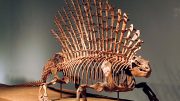
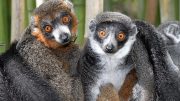
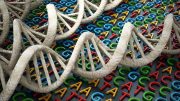
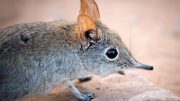

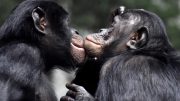
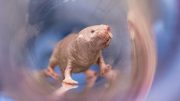
“Egalitarian” illusion? With THAT sort of “reasoning”, an “exceptional” mammal would surely be a wonder! Mankind is the peak of creation, and the process of our creation IS the exceptional process that is a wonder!
We are NOT the peak of creation. We are just simply another animal with the ability of conscious awareness (whic isn’t even unique to humans). Until this arrogance is weeded out, we will continue to destroy ourselves.
“….think they are part of an evolved society different from the other mammals…”
An illusion of ego and arrogance.
This lacked logic profoundly, apparently similarity of breeding indicates similarity of all species variations. At the scientific level this is childish, if one were to employ the same logically fallacious method in any affirmation of human uniqueness they would be mocked as a incompetent. Yet, if the agenda is a universal negation of anything which bares the slightest indication of human superiority to other creatures, then indeed it passes as scientific brilliance for the google feed of a logically bereft American society. It seems science loves now to affirm the bad philosophy of Dawkins though mediocre science which becomes but the misnomer of their philosophical professions. Many have become dogmatic naturalist, such as this article implicitly suggests to be objective.
What if the creatures who publish bad and good articles are vareint from the masses of other creatures, which the former can teach to do basic mathematics and other imitations of actual genius and ontological transcendence?
If one wished to be better educated then this, I would recommend looking into Bishop Barron’s stuff on faith and reason. Or “The Universe Next Door”
We are not mammals, we are a plague and if anything a very destructive parasite.
I hope one day a bill will pass that will enforce human neutering.
Hmm this is a strange and odd article . Until i read the research was from U C Davis . O ah thats speaks volumes .
It is rather self evident that humans are exceptional . We are beyond doubt superior to all animals . We are the apex of life on earth . That we can do amazing good, but also horrendous evil . Reflects our freedom and scope as a species . So beyond any animal . The animals teach us many things . We should respect and care for all species .
I have long felt that the quality of research was inversely proportional to the number of authors.